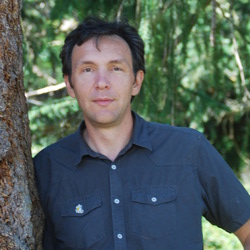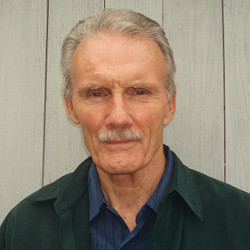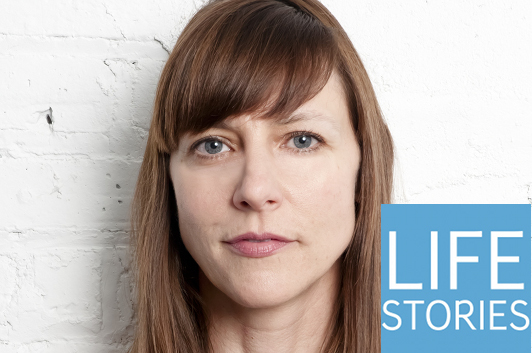Life Stories #56: Beth Lisick
Subscribe to Life Stories in iTunes
In this episode of Life Stories, I meet up with Beth Lisick, a writer I’ve been a fan of for nearly twenty years since she was doing spoken word performances in clubs in San Francisco. There’s some scenes from that part of her life that make it into Yokohama Threeway and Other Small Shames, but the book also reached back to her early childhood and to fairly recent events—it’s not a conventional memoir so much as a collection of fragmentary moments of embarrassment and mortification and humiliation. Here’s what she told me about how it came together, after she’d become frustrated with the autobiographical writing she’d been doing for mainstream publishers over much of the last decade:
“I was really tired of trying to write about myself in this way where I was creating a character, and I had to make that character funny, yet smart, yet accessible, yet a little bit crazy… suitable for editors at a big publishing house to say, ‘Oh, this is relatable! You seem so nice and a little messed up, a little bit quirky…’ I didn’t like having to present myself in this way that I felt pressured to, so I decided to start writing this novel, and after I began the novel, I thought, okay, I’m never writing about myself again.
And then I remembered: God, I have so many amazing stories that are just little vignettes, little moments really, that aren’t… that never found themselves into essays or big stories, and so it was almost like, for me, the nail in the coffin of autobiographical work, that I was just like, you know what I’m going to do? I’m going to come up with everything I can think of about my life that is funny, interesting, weird, terrible and put it in this book and then move on.”
She describes the reaction from her previous publisher: “Oh, you know, I think what we really need is just ten longer, funny essays and if you want to do that, we’d love to publish it.” But she felt that this way the way this book needed to be written, which is why it ended up at the indie publishing house City Lights. We get into some more details of the frustrations she felt with those earlier autobiographical personas (especially the molds that other people wanted to cast her into), then talk about things like the tensions between creative freedom and financial success and what it’s like to define yourself by your failures. Among other topics.
There was a moment earlier this year, in my conversation with Dani Shapiro, where we discussed the idea of memoir as picking at the deepest wounds, and I think you can apply that metaphor to Yokohama Threeway—except that Beth is paying attention to a broad series of cuts and scrapes, leaving any larger narrative unspoken. It’s not quite poetry, but it’s more than simple prose, and its intimacy sneaks up on you.
Listen to Life Stories #56: Beth Lisick (MP3 file); or download this file by right-clicking (Mac users, option-click). Or subscribe to Life Stories in iTunes, where you can catch up with earlier episodes and be alerted whenever a new one is released. (And if you are an iTunes subscriber, please consider rating and reviewing the podcast!)
9 December 2013 | life stories |
A2A: Scott Elliott & Lamar Herrin
The novels Fractures and Temple Grove are set at opposite ends of the United States, and their environmentalist concerns are different: the one with hydrofracking in Pennsylvania, the other with logging in the Pacific Northwest. But their authors, Lamar Herrin and Scott Elliott, found plenty of common ground during a recent e-mail exchange… not least of all in their ability to draw out the characters and the relationships that make these more than just “a book about hydrofracking” or “a book about the logging controversy.” In a way, those may be the least of what these two novels are “about.”
 Scott Elliott: Fractures is masterful in its ability to take us into interior lives. It’s been some time since I’ve read a novel so invested in multiple characters and the tenuous connections between them, and so ambitious and successful at seamlessly moving us into and out of different characters’ heads. Plumbing the depths of characters’ psyches and putting pressure on them would seem to have a ready analogue in the central subject matter and source of conflict that the book takes up in all of its complexity—the hydrofracking in which deep drilling and the pressure of lots of water laced with chemicals releases natural gas.
Scott Elliott: Fractures is masterful in its ability to take us into interior lives. It’s been some time since I’ve read a novel so invested in multiple characters and the tenuous connections between them, and so ambitious and successful at seamlessly moving us into and out of different characters’ heads. Plumbing the depths of characters’ psyches and putting pressure on them would seem to have a ready analogue in the central subject matter and source of conflict that the book takes up in all of its complexity—the hydrofracking in which deep drilling and the pressure of lots of water laced with chemicals releases natural gas.
I wonder if you could talk about your research into natural gas drilling and also the degree to which you thought about the notion of hydrofracking in a metaphorical sense when you were writing the novel and within the novel—as an analogue for the process of fiction writing, and for the way pressure tests bonds between characters in the novel’s extended family.

Lamar Herrin: My research into natural gas drilling took place mostly on the ground, wandering around drilling sites in northern Pennsylvania and making a bit of a nuisance of myself. Talking to anybody who would talk back and keeping my senses alert. I never managed to get onto a drilling rig floor, at least not in person. But as I began to do parallel wandering on the web, and as one video led me to four or five others, I did manage to accumulate a lot of impressions. It turns out drill workers like to video themselves working, sound effects and all. It didn’t take a great leap of the imagination to smell the smells. I talked to certain people at Cornell University and did the reading I could, but mostly it was groundwork and moving around on the web.
And I talked to people in the towns. Friends have asked me what got me thinking of a novel, and I’ve come to believe it was the moment I walked into the Susquehanna County Court House in Montrose, Pennsylvania (I had gone there, and to Dimock, which is close by, to simply get enlightened, to see what might be coming our way in the Southern Tier of New York State). But in the court house a policeman on duty explained that the desks I saw lined up and down the long central hall had been set out so that property owners could come check their deeds, and so that competing family members (or so the policeman claimed) could see who owned what. Almost all of my novels have had to do with families, and here, I quickly realized, was a plot.
8 December 2013 | author2author |


 Our Endless and Proper Work is my new book with Belt Publishing about starting (and sticking to) a productive writing practice.
Our Endless and Proper Work is my new book with Belt Publishing about starting (and sticking to) a productive writing practice. 
